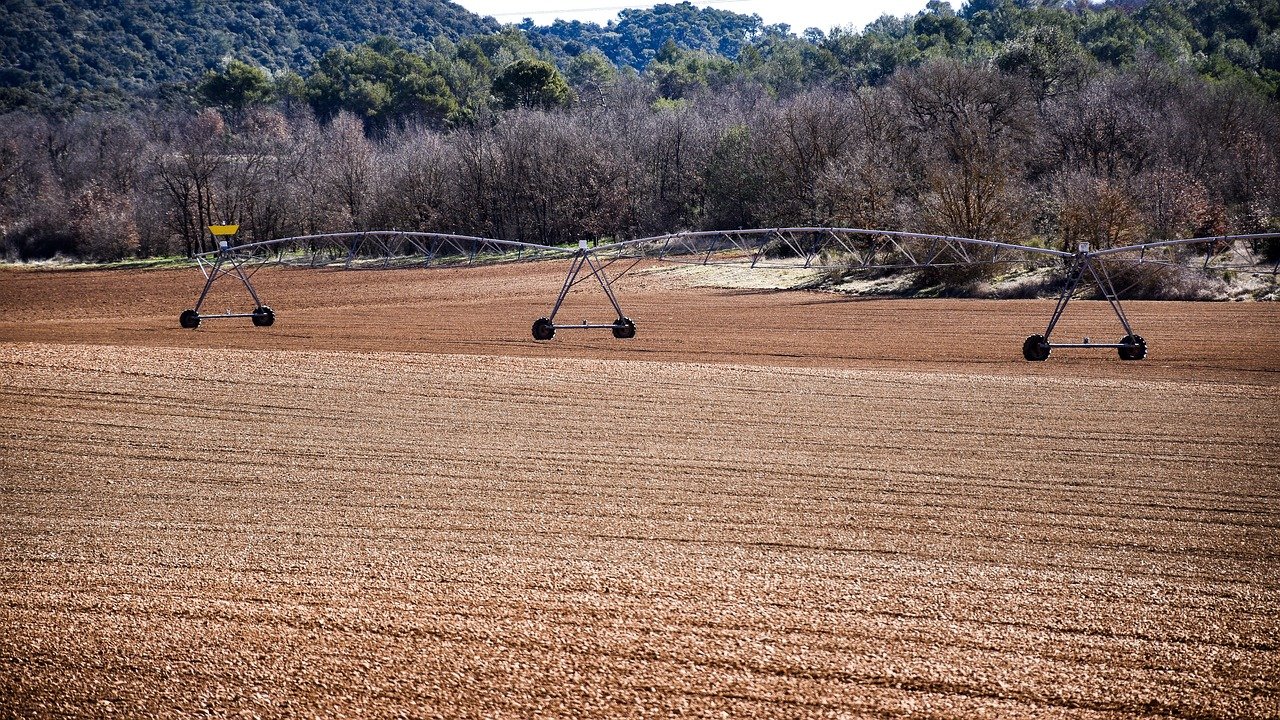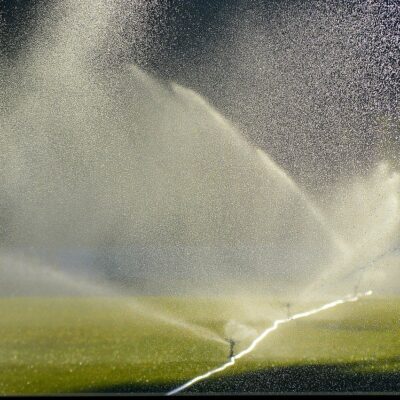Water is one of the most precious natural resources on the planet, and making sure we use it efficiently is everyone's business. People with private gardens and households can have a significant impact on how much water is wasted, and in the meantime, the agricultural industry has to step up.
Agricultural irrigation is crucial to the UK's rural economy. It also impacts on the health and wellbeing of every man, women, and child living here. Over 1,000 businesses involved in agriculture rely on irrigation to be able to supply high-quality fruits and vegetables into the nation's food shopping infrastructure. It is arguably one of the most advanced and sophisticated markets worldwide. It employs more than 50,000 people and accounts for a £3 billion share of our entire rural economy.
The Challenges that Farmers Face
Irrigation for framers today poses increasing challenges. They come from new legislation, climate change, the increasing dangers from drought and flood events, as well as the need for greater accountability and the expectations on sustainability.
Historically, if farmers wanted to grow more products, they had to have more fertilisers, more land, and a bigger labour force. Today, more concentration is being focussed on precision irrigation. Its is a methodology that looks at reversing the preconceived relationship between output and its associated costs.
What is Precision Irrigation?
The aim of precision irrigation is to deliver the ideal amount of water and nutrients directly to the roots of the crops - rather than the soil. When done correctly it results in bigger and better yields per season, but employing only a fraction of the resources.
The fact that precision irrigation supplies the crops with water instead of the soil, is hugely significant. It means that by delivering water plus nutrients directly to the roots of the plants, farmers can cut costs. But of even more significance is the fact that enables farmers to cultivate healthier crops and get bigger yields.
Changing how farmers use water
Let's take a look at three ways that precision irrigation is benefiting the agricultural sector.
Eliminating Run-Off and Deep Percolation
The concept of precision irrigation is to get water and nutrients directly to the root systems of the crops in measured doses that will enable the optimisation of moisture levels at the root zone. To be successful, the amount of water and nutrients delivered must be no less and no more than the plant needs.
Because there is no significant excess of water, and the rate of flow is moderated, precision irrigation does away with both surface run-off and deep percolation. Deep percolation relates to the amount of water flow underneath the crops' root zones.
When designing systems for precision irrigation, you must take into account the ability of the soil to absorb water, and the rate at which the crops consume water, while guaranteeing that the water remains in the active root zone to maximise feeding the crop. Not only does this results in achieving bigger and better yields than before, but it also means using less water.
Repurposing Wastewater
Wastewater doesn't necessarily have to be a waste. It can be repurposed and therefore become an asset. The problem is that waterborne pathogens can make the water unusable as flood, pivot, and sprinkler systems can result in crop contamination.
However, if you use drip irrigation, the water is delivered directly to the crop's root system. It means that the plants never have to come into contact with any of these pathogens, but they still get exactly the amount of water they need in order to survive and thrive. What was previously wastewater, now becomes an important and valuable resource.
Minimising Evaporation
When you apply water with a pivot or larger sprinkler system, it results in a tremendous loss through evaporation. By using one of these systems, between 15 and 30% of your water disappears during its journey from emitter to ground, and therefore never gets delivered to the root zone of the crops.
When you employ drip irrigation, however, because the water is delivered straight to the roots of the crops, evaporation does not get a chance to take place. It means that you can use the water optimally and get value from every single drop. The end-result is that you can irrigate as much as 30% more land using the same quantity of water.
Improving the Condition of the Soil
Pivot or flood irrigation systems deliver large quantities of water in a short duration which causes extreme saturation. It decimates aeration and subjects the plant's root systems to stress as they struggle for a balance between air and water.
It also means that nutrients from the plants are leached from the plants into the ground below the active root system, lessening the number of nutrients in the crops.
Precision irrigation allows you to irrigate your crops with the perfectly timed amount of water and nutrients in relation to the type of soil and plants, meaning that the ratio between air and water is optimised and the plant nutrients are kept where they should be - inside the plants.
Achieving Perfect Fertigation
The second of the three ways that precision irrigation benefits the agricultural sector is in facilitating perfect fertigation.
Keeping control over what you deliver to your fields every day in terms of fertiliser rather than dumping a whole year's worth in one go provides many benefits. It enables you to optimise yields and lower nutrient costs by giving your plants what they need when they need it.
By using a drip system to deliver nutrients, you can reduce both equipment and labour costs. In addition, it means that you can manage and minimise the risks brought about by falls in the prices of crops, the onset of diseases, or unpredictable weather conditions.
Future Supply and Demand
The last of the three ways in which precision irrigation will benefit the agricultural sector is in securing the future. It is estimated that by the year 2050, the world agricultural machine will need to double its food production. To match the pace of demand, it will mean that farmers will need twice the volume of water and the area of arable land. However, both resources are in worrying decline.
So, farmers must find a solution that significantly changes the way they farm. They need something that will improve agricultural efficiency and productivity with the current level of resources. It can be and must be done, by utilising precision irrigation.


